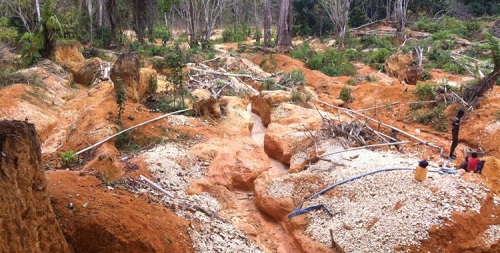History of the Forest Declaration Assessment
The Forest Declaration Assessment a comprehensive civil society-led effort to assess collective progress toward global forest goals.
The Forest Declaration Assessment annually publishes rigorously researched and peer-reviewed progress assessment reports on the state of global forests. Our critical, evidence-based analyses highlight the gaps and point to solutions to overcome inertia, countervailing economic forces, and other barriers to progress.
The information that the Forest Declaration Assessment collects and publishes every year supports planning to ensure that 2030 forests goals can be met through a coordinated and collaborative effort of governments, corporations, and civil society.
The history of the Forest Declaration Assessment
When the New York Declaration on Forests (NYDF) was adopted in 2014, it launched without a built-in mechanism for monitoring and accountability. Out of that gap, the NYDF Progress Assessment was born. Convened by a coalition of civil society organizations called the NYDF Assessment Partners, the NYDF Assessment published its initial report and assessment framework in 2015. Since then, the NYDF Assessment has published annual progress reports on the ten goals of the NYDF.
From 2016 to 2021, the NYDF Assessment published in-depth focus reports on each of the NYDF’s major themes:
- Overarching forest goals: Protecting and restoring forests in 2019 and Taking stock of national climate action for forests in 2021
- Sustainable production and development: Eliminating deforestation from the production of agricultural commodities in 2016 and Balancing forests and development in 2020
- Forest finance: Finance for forests in 2017
- Forest governance: Improving governance to protect forests in 2018
Forests received unprecedented attention at the 26th Conference of the Parties (COP26) in Glasgow in 2021. Over 140 countries pledged to halt and reverse deforestation by 2030 under the Glasgow Leaders’ Declaration on Forests and Land Use, while a plethora of other pledges (on finance, supply chains, Indigenous peoples and local communities, tenure, and more) added much-needed specificity to the already crowded realm of voluntary forest commitments. In light of this broad field of forest pledges and the urgency of driving real action toward the 2030 forest targets, the Forest Declaration Assessment is expanding its comprehensive tracking and assessment process to additional commitments beyond the NYDF.
The Forest Declaration Assessment’s rigorous, evidence-based stock takes enable accountability to voluntary forest commitments and fill a critical credibility gap for pledges without built-in monitoring and reporting.
Who are the Forest Declaration Assessment Partners?
In 2015 the NYDF Assessment Partners were formed as an independent civil society initiative to monitor progress towards the NYDF’s global goals through the NYDF Progress Assessment. What started as a coalition of six organizations has grown into a strong and diverse group of research organizations, think tanks, NGOs, and advocacy groups spanning the globe now known as the Forest Declaration Assessment Partners. The network also coordinates closely with external collaborators from academia, multilateral institutions, and governments.
Just as achieving the 2030 forest goals will require joint effort, assessing collective progress necessitates collaboration between a multitude of organizations. The Forest Declaration Assessment Partners share the aim of promoting transparency and encouraging urgent and decisive action from all stakeholders. The partners draw on their collective expertise to provide scientific and independent assessments that, combined, provide a comprehensive and robust picture of global and regional progress. In addition, they form a coordinated front for research, outreach, and advocacy, forming a powerful coalition that is stronger than the sum of its parts.

Comments
Post a Comment